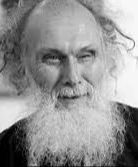The Rudolf-Carnap-Lectures were held for the first time in 2007. Over the course of these years, they have been host to many prestigious speakers from a variety of backgrounds. Here, we have compiled a list of each year’s key speaker and the talks they gave:
2023: Prof. Kim Sterelny
1. Cumulative Culture: The Standard Model and its Problems
2. The Challenge of Sorcery
3. Cumulative Culture and Niche Construction
4. Cumulative Culture in Unequal Worlds
Organization: Prof. Dr. Albert Newen, Prof. Dr. Tobias Schlicht

2022: Prof. Cecilia Heyes
1. What happened to mirror neurons?
2. The cultural evolution of thinking
3. Rethinking norm psychology
Organization: Prof. Dr. Albert Newen, Prof. Dr. Tobias Schlicht

2019: Prof. Frances Egan & Prof. em. Robert Matthews (Rutgers)
1. Representation in Cognitive Science (Egan)
2. Glossing the theory: Recovering the Person (Egan)
3. Some bad news for Relationalism about the Attitudes (Matthews)
4. A case for Dispositionalism about the Attitudes (Matthews)
Organization: Prof. Dr. Albert Newen, Prof. Dr. Tobias Schlicht
2018: Prof. Dr. Thomas Metzinger (Mainz)
- What is the deepest level of self-consciousness?
- Mental autonomy, cognitive agency, and abstract levels of self-identification
- Minimal phenomenal experience: A new theory about consciousness as such
- Virtuelle Realität und Künstliche Intelligenz. Neue Fragen für Gesetzgebung und Angewandte Ethik
Organization: Prof. Dr. Tobias Schlicht, Prof. Dr. Albert Newen
2017: Prof. Frank C. Jackson (ANU)
- How to think about perceptual content and how this delivers „feel“
- The nature of Mind: What kind of materialist should I be?
- Conceptual Analysis for explainers and predictors
- Two-dimensionalism for Mooreans
Organization: Prof. Dr. Tobias Schlicht, Prof. Dr. Albert Newen
2016: Prof. em. Patricia S. Churchland (San Diego)
- Neurophilosophy: New developments concerning representing and valuing
- The impact of social neuroscience on moral philosophy
- Nerve Agents. You and your amazing old-fangled reward system
Organization: Prof. Dr. Tobias Schlicht, Prof. Dr. Albert Newen
2015: Prof. John Campbell (Berkeley)
- General versus Singular Causation in the Mind
- Imagination versus Scientific Explanation
- Interventions on the Mind
- The Validity of a Psychological Construct
2014: Prof. Daniel C. Dennett (Tufts)
- Explaining Mind. Cultural Evolution as the Bridge from Absolute Ignorance to Intelligent Design
- The Competence of nature
- If Brains are computers, what kind of computers are they?
- How memes equip our brains for comprehension
Organization: Prof. Dr. Tobias Schlicht, Prof. Dr. Albert Newen
2013: Prof. David J. Chalmers (ANU/NYU)
Structuralism, Space, and Skepticism
Organization: Prof. Dr. Tobias Schlicht, Prof. Dr. Albert Newen
2012: Prof. Ned Block (NYU) & Prof. Susan Carey (Harvard)
- The origin of concepts: the case of natural number (Carey)
- How the nature of attention can decide among the major
theories of perception (Block) - How iconic memory shows that consciousness is fundamentally
different from cognition (Block) - Insights about what we see from crowded perception (Block)
- Core Cognition of the Social World (Carey)
Organization: Prof. Dr. Tobias Schlicht, Prof. Dr. Albert Newen
2011: Prof. Tim Crane (Cambridge) & Prof. Katalin Farkas (Budapest)
1. Non-existent objects (Crane)
2. Psychologism, semantics, and the non-existent (Crane)
3. What is distinctive of human thought? (Crane)
4. Extended Minds (Farkas)
5. Extended Selves (Farkas)
Organization: Prof. Dr. Albert Newen
2010: Prof. David Papineau (King’s College London)
1. The phenomenal concept strategy
2. Mind the Gap
3. The intuition of distinctness
4. Mental causation
5. Are humans just physical machines?
Organization: Prof. Dr. Albert Newen
2009: Prof. John Perry (Stanford)
1. Meaning and the Self
2. Self-Knowledge
3. Freedom and the Self
4. Borges’ Selves
Organization: Prof. Dr. Albert Newen
2008: Prof. Alva Noë
1. Conscious Reference
2. Magic realism and the limits of intelligibility
3. Perception without Representation
4. Novel Experiences
5. Presence in Pictures
Organization: Prof. Dr. Albert Newen, Prof. Dr. Tobias Schlicht
2007: Prof. Shaun Gallagher (Florida)
1. Embodied Subjectivity and self-agency
2. Multiple aspects of agency: phenomenology and neuroscience
3. Understanding others in action and narrative
4. Embodiment and understanding other agents: neural resonance and simulation theory
5. Embodiment, intersubjectivity, and moral personhood
Organization: Prof. Dr. Albert Newen















